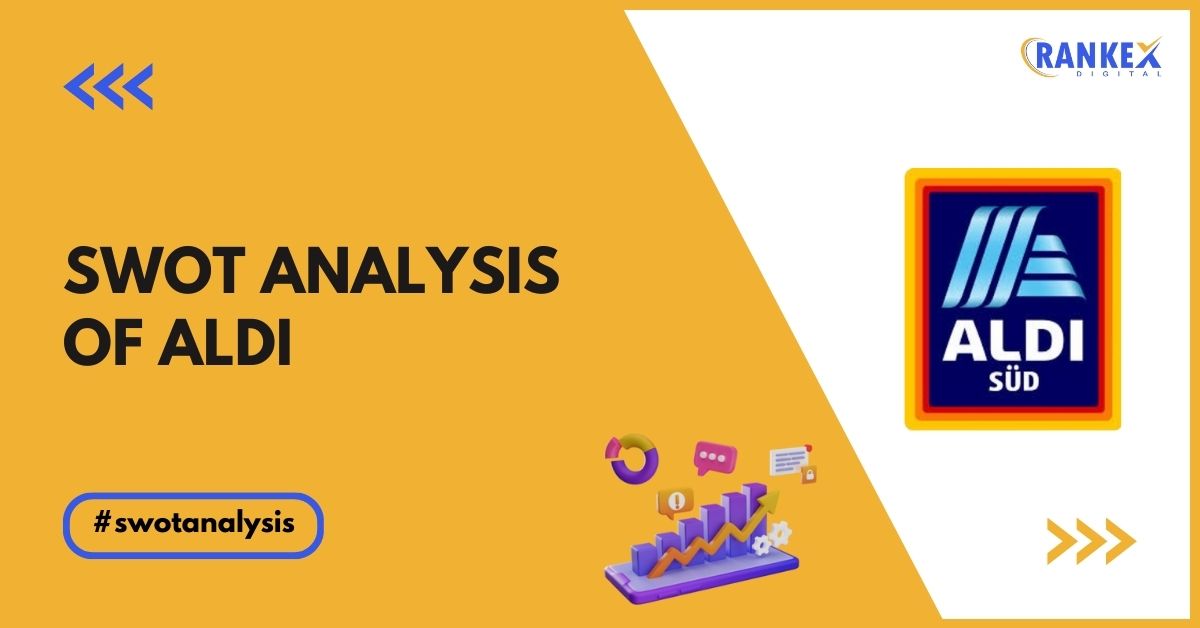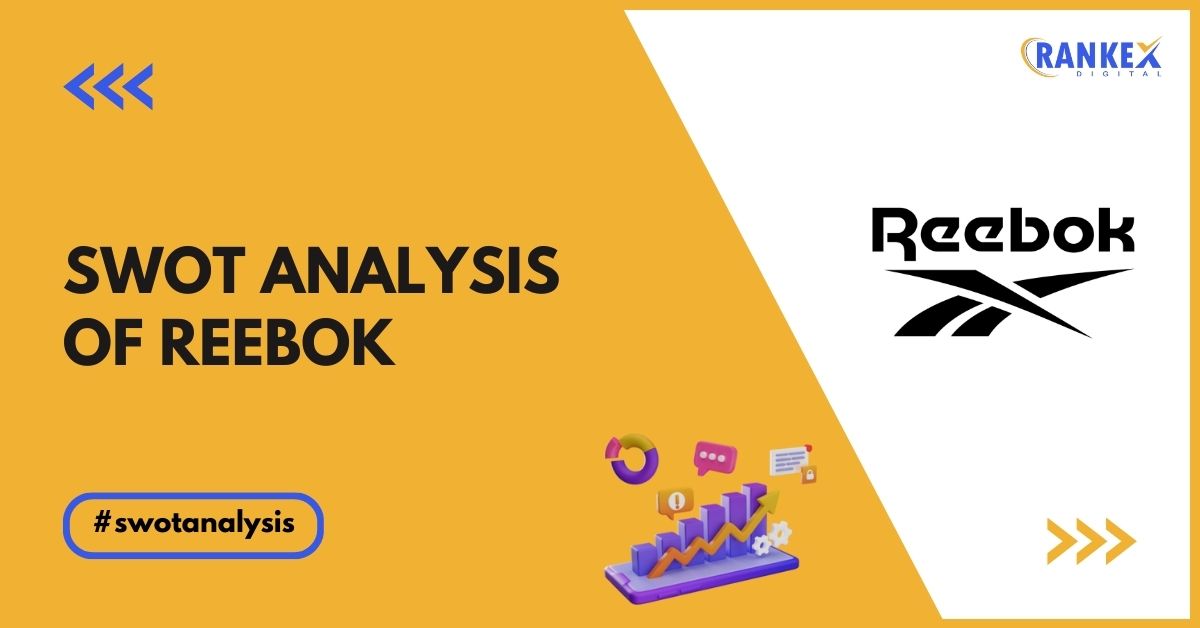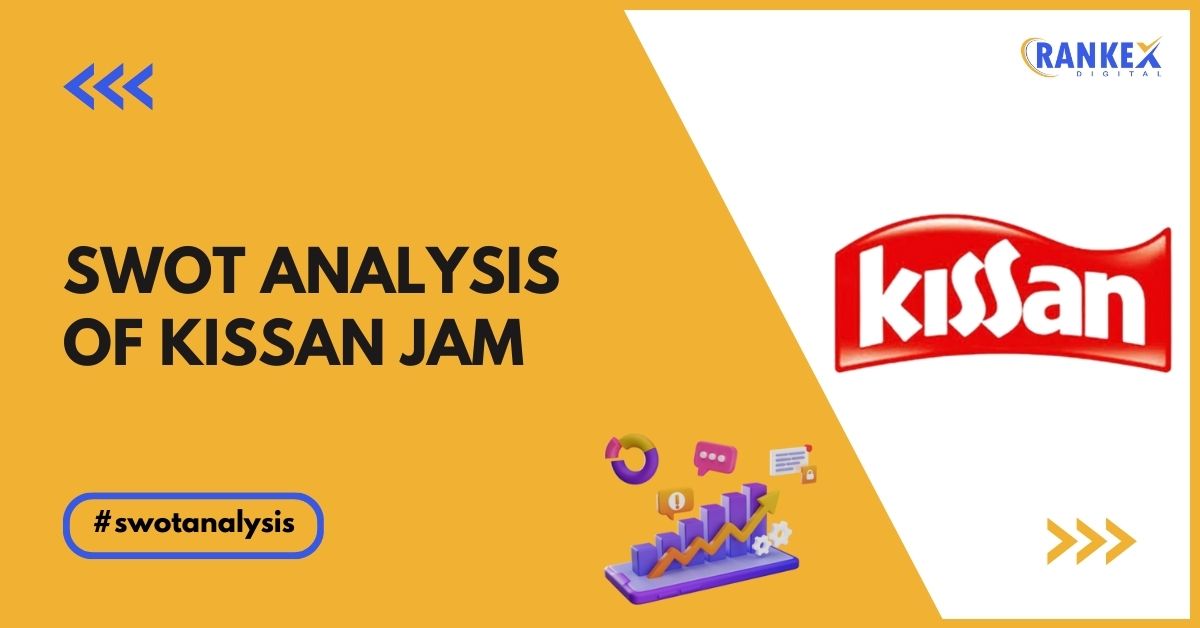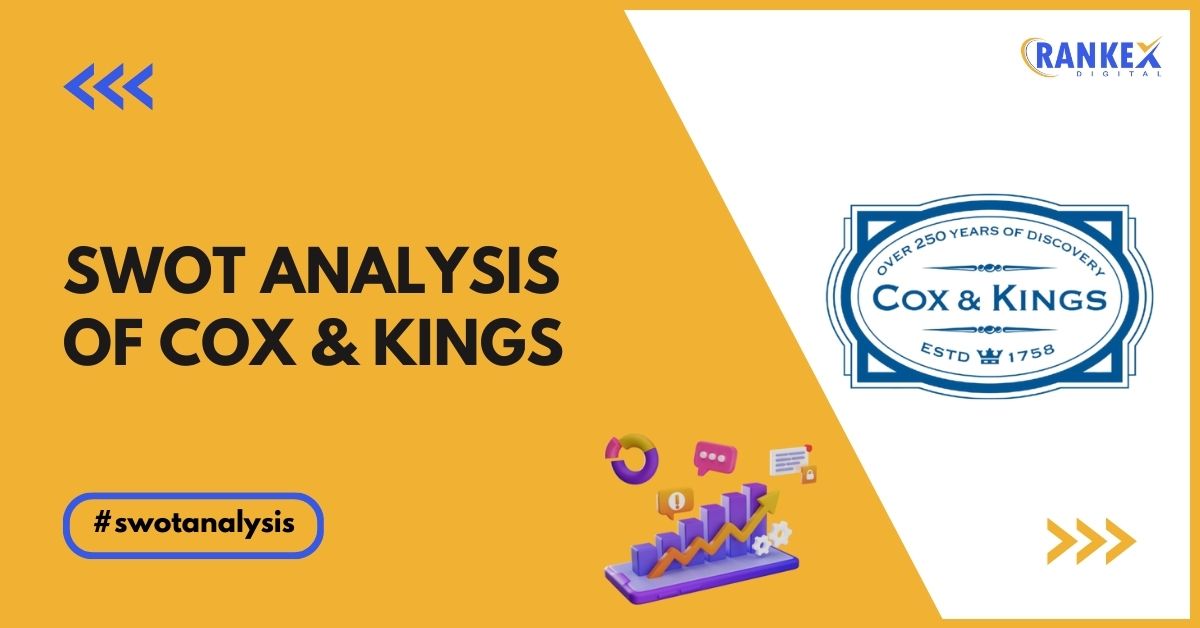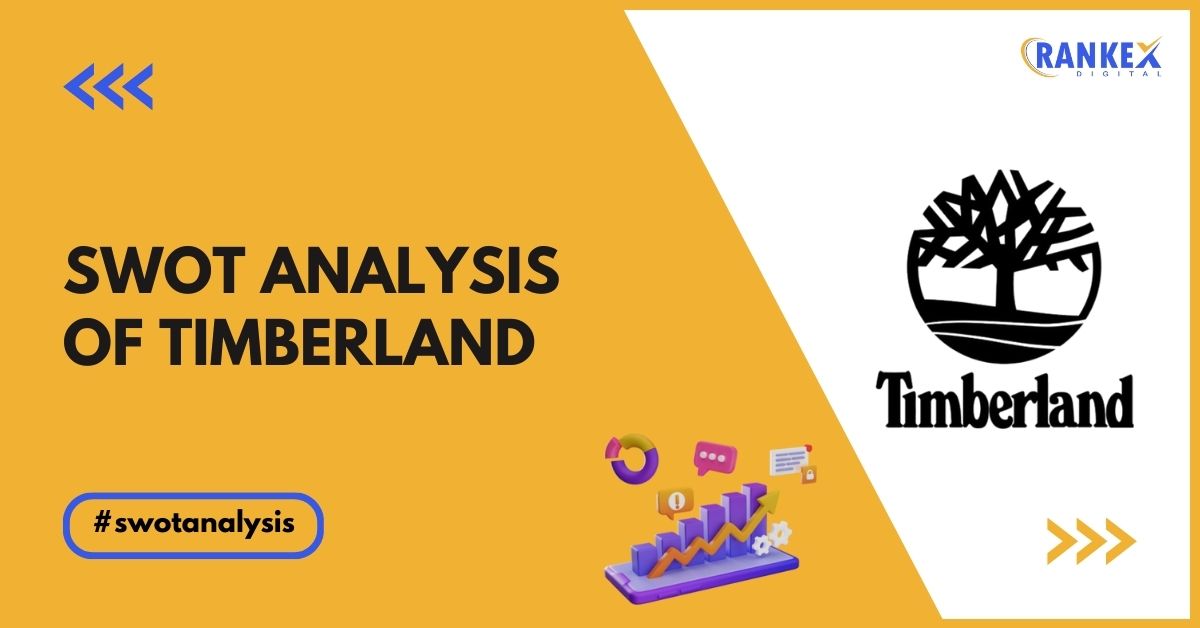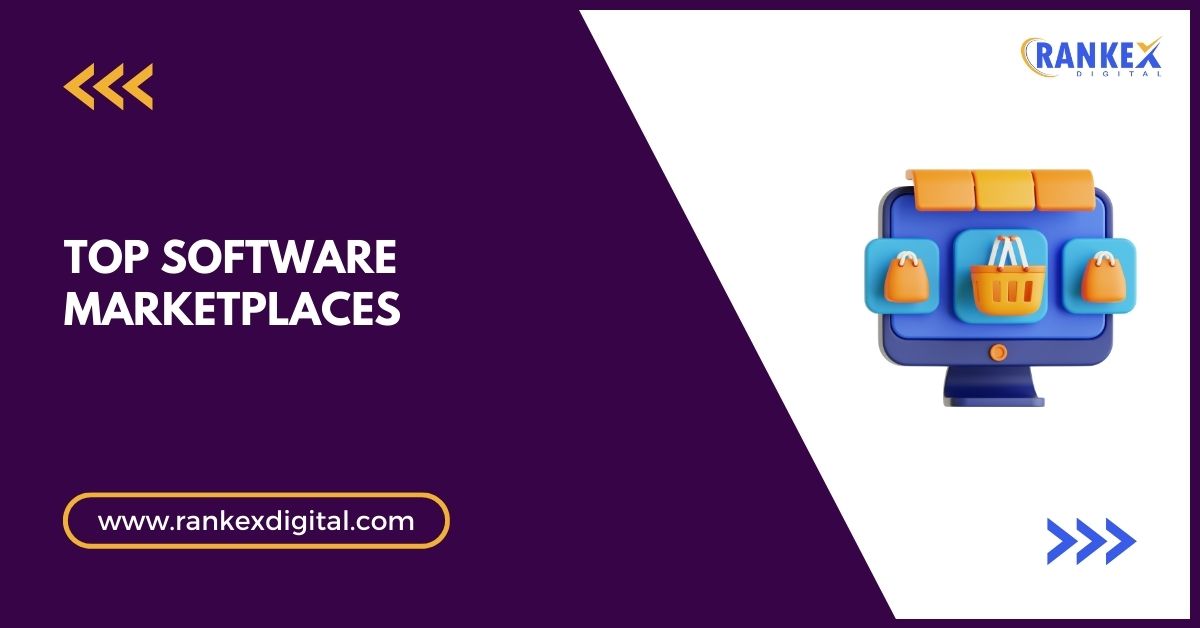Aldi, a global supermarket chain renowned for its low prices and high-quality products, has become a household name in the retail industry. Originating in Germany, Aldi has expanded to multiple countries, providing a unique shopping experience centred on simplicity, efficiency, and affordability.
Conducting a SWOT analysis of Aldi helps to understand its current market position and the challenges and opportunities that lie ahead. This blog explores Aldi’s strengths, weaknesses, opportunities, and threats in a highly competitive retail market.
In this blog
Overview of Aldi
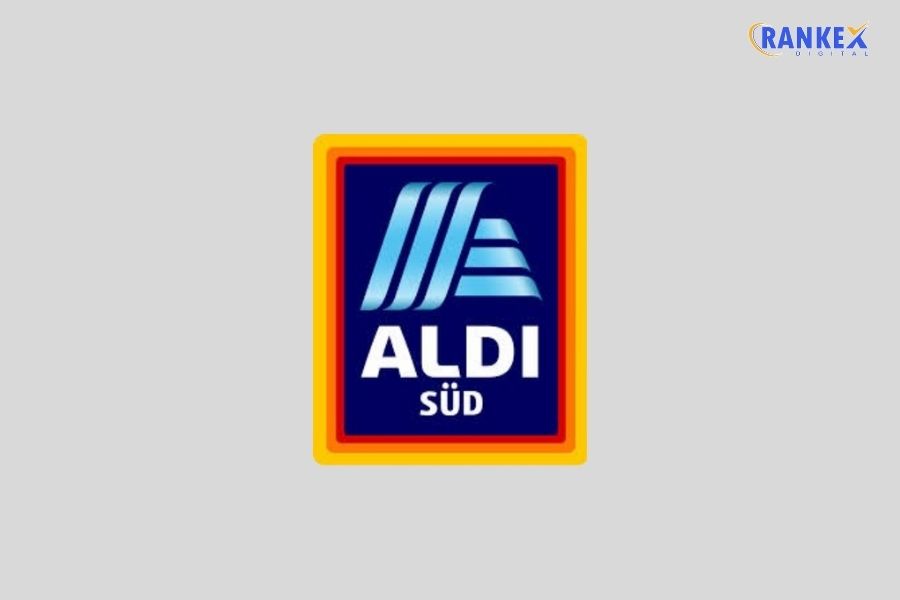
Founded in 1946, Aldi was established as a family-owned business in Essen, Germany, by brothers Karl and Theo Albrecht. Over the decades, the brand has grown into a global powerhouse, with operations in over 20 countries, including the USA, UK, and Australia.
Aldi’s business model emphasizes cost efficiency, private-label products, and limited SKUs, enabling it to offer competitive prices without compromising quality.
Quick Stats About Aldi
| Founder | Karl Albrecht and Theo Albrecht |
|---|---|
| Year Founded | 1946 |
| Headquarters | Essen, Germany |
| Global Presence | 20+ countries |
| Revenue (2023) | Estimated $125 billion |
| Business Model | Discount retail |
SWOT Analysis of Aldi
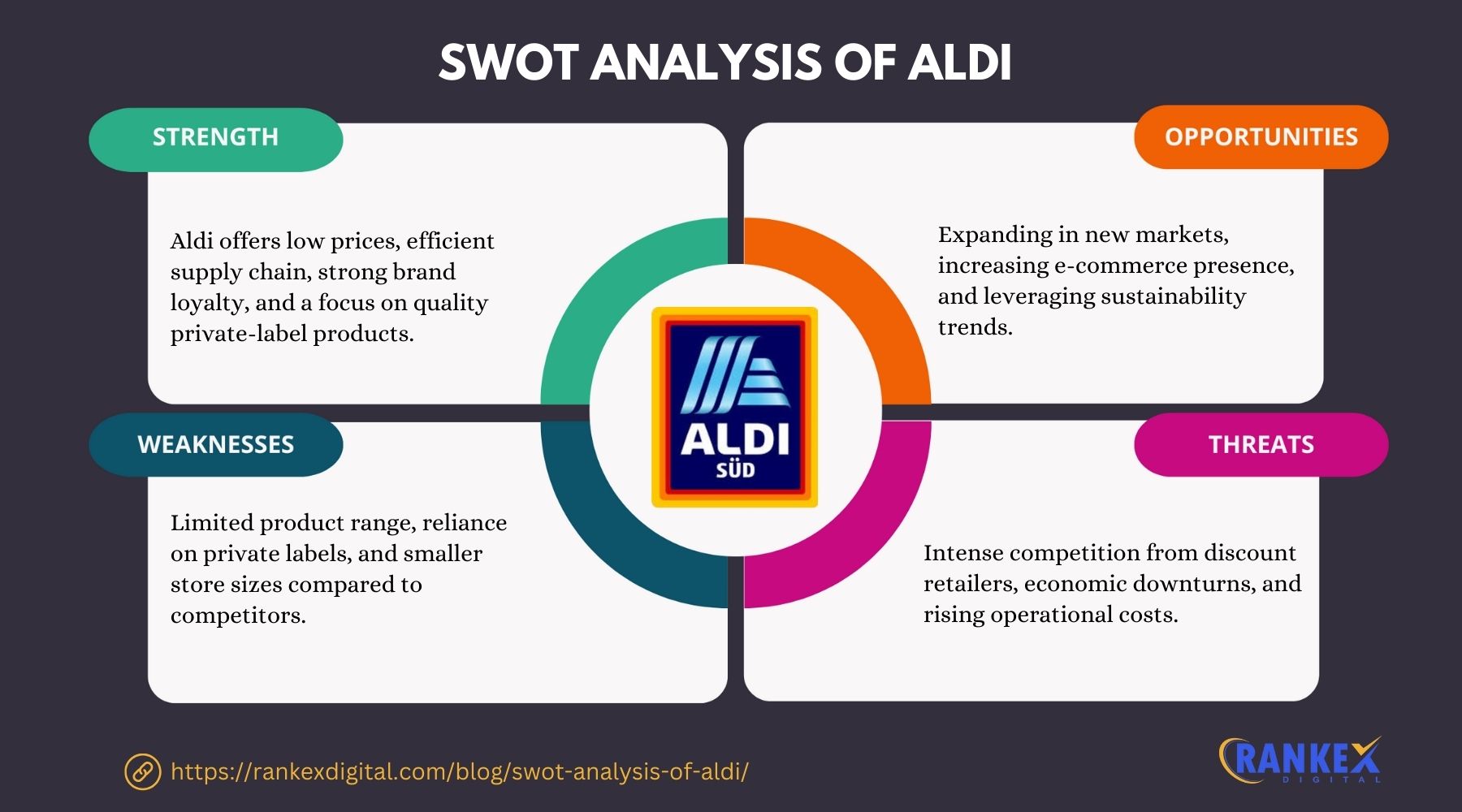
Strengths of Aldi
- Cost Leadership:
Aldi’s business model is centred around offering the lowest possible prices, which is achieved through several cost-cutting measures. The company reduces costs by limiting its product assortment, avoiding branded goods, and keeping store layouts simple and efficient. Aldi also eliminates intermediaries by focusing on private-label products, which allows it to control costs, quality, and pricing. The streamlined supply chain and efficient inventory management further reduce operating expenses. This cost leadership allows Aldi to maintain a strong competitive advantage in price-sensitive markets, appealing to budget-conscious shoppers who prioritize affordability over premium selection. - Strong Brand Reputation:
Aldi has built a reputation for delivering high-quality products at affordable prices. Over time, it has positioned itself as a brand that consumers can trust for value without compromising on quality. This strong reputation is reinforced by its commitment to offering everyday essentials that meet or exceed expectations for quality. Aldi’s brand is synonymous with reliability, making it a go-to choice for price-conscious shoppers. Additionally, the consistency of the brand’s pricing and quality has created a loyal customer base that appreciates Aldi’s straightforward and no-frills approach to grocery shopping. - Efficient Operations:
Aldi’s operational model is designed to minimize overhead and maximize efficiency. The company keeps its store designs simple and its staff levels low to reduce labor costs. Its focus on a limited product range (with fewer SKUs) allows for faster inventory turnover, helping to lower supply chain costs. Aldi also operates a highly efficient logistics system, which enables it to keep product prices low while maintaining quality. The company’s ability to operate in a lean manner is a core factor in its competitiveness, allowing Aldi to pass savings onto customers while maintaining profitability. - Sustainability Initiatives:
Aldi has made significant strides in enhancing its sustainability practices, which appeal to environmentally-conscious consumers. The retailer has been proactive in reducing plastic packaging and introducing reusable bags, aligning with global trends towards sustainable consumption. Aldi’s efforts extend to energy-efficient store designs and the promotion of sustainable sourcing for certain product lines. These initiatives not only contribute to reducing Aldi’s environmental impact but also strengthen its appeal to a growing segment of eco-conscious shoppers who prioritize sustainability in their purchasing decisions. Aldi’s continued investment in sustainability can further bolster its reputation as a socially responsible retailer. - Private Label Dominance:
Over 90% of Aldi’s products are private-label, which provides the company with more control over product quality and pricing. This strategy not only differentiates Aldi from traditional supermarkets that rely heavily on branded goods but also enables it to offer unique, often higher-quality products at competitive prices. By reducing its reliance on national brands, Aldi can pass on significant savings to consumers while maintaining consistency in product quality. Private-label dominance also allows Aldi to build stronger relationships with suppliers, improve supply chain efficiencies, and increase its overall bargaining power.
Weaknesses of Aldi
- Limited Product Variety:
Aldi’s focus on a streamlined product offering, while beneficial for keeping costs low, may not appeal to customers who are looking for a broader selection of goods, especially niche or speciality items. This limitation can be a significant disadvantage for shoppers who are accustomed to one-stop shopping experiences that offer a wider variety of options, including premium, organic, or gourmet products. While Aldi excels in providing essential goods, its narrower assortment may leave some customers seeking specific products (like specific international brands or unique grocery items) disappointed. This could also limit Aldi’s ability to capture higher-income consumers who are looking for variety and luxury options. - No Loyalty Programs:
Aldi does not currently offer any formal loyalty programs or reward schemes, which is a common strategy for many of its competitors. Loyalty programs can be an effective tool for increasing customer retention and driving repeat business, as they provide incentives for customers to shop more frequently and spend more. Without such programs, Aldi may miss out on opportunities to foster stronger customer relationships or create additional engagement with its shoppers. Many competitors, especially larger supermarket chains, use loyalty cards and rewards to encourage customer loyalty, making it harder for Aldi to retain its price-sensitive customer base in the long run. - Limited Online Presence:
Although Aldi has recently started to embrace e-commerce and delivery services in some markets, it remains relatively behind its competitors in terms of online shopping capabilities. Larger retail chains, such as Walmart, Tesco, and even Costco, offer robust online shopping platforms with home delivery services, giving them a significant edge in meeting the growing demand for online grocery shopping. Aldi’s slower adoption of digital sales channels limits its ability to tap into the increasing trend of online grocery shopping, especially as consumer habits shift. Without a comprehensive and user-friendly online platform, Aldi risks losing out on the expanding online customer base that prefers to shop from home. - Perceived Lack of Luxury:
Aldi’s value-driven approach to grocery retail can sometimes create the perception that its products are of lower quality, especially among consumers who prioritize premium or luxury items. While Aldi provides high-quality basic products, it may struggle to attract higher-income consumers who are seeking premium, organic, or gourmet options. This is particularly important as consumer preferences shift toward healthier eating habits, plant-based options, and organic food. Although Aldi offers some organic products, it may not have the breadth or the luxury appeal that some high-end consumers are looking for. This perception of being a budget-only brand may limit Aldi’s ability to penetrate higher-income or luxury markets, where shoppers might be unwilling to compromise on quality or exclusivity. - Dependence on Cost-Conscious Shoppers:
Aldi’s entire business model is built around attracting price-sensitive shoppers who prioritize savings above all else. However, this focus on cost-conscious consumers exposes Aldi to risks associated with shifts in consumer behaviour. As economic conditions improve or if consumer preferences change towards premium or more convenient products, Aldi may find it harder to maintain its core customer base. Economic recovery or increased disposable income could lead to a shift in spending behaviour, with customers seeking higher-end, more diverse product offerings. In such a scenario, Aldi might need to adapt its business model or expand its product range to remain relevant to evolving market demands.
Opportunities for Aldi
- Expansion in Emerging Markets:
The growing middle class in emerging markets such as Asia, Africa, and Latin America presents a major opportunity for Aldi to expand its footprint. As these regions continue to experience economic growth, the demand for organized retail, including supermarkets and discount stores, is expected to rise. Aldi’s business model, with its focus on affordability and value, is well-positioned to capitalize on this shift, particularly as new consumers in these regions prioritize savings and seek affordable alternatives to traditional supermarkets. Aldi can introduce its simplified and cost-effective model to these areas, capturing significant market share by appealing to the price-sensitive segments in these regions. - Enhanced Online Services:
Aldi has the opportunity to expand its online presence to better compete in an increasingly digital world. The growing popularity of online grocery shopping presents a chance for Aldi to invest in e-commerce platforms and home delivery services, making shopping more convenient for customers. This could involve expanding its partnerships with third-party delivery services or developing its own infrastructure to support online orders. With the right investments, Aldi could expand its reach to customers who are unable or unwilling to visit physical stores, particularly those who are more inclined to shop from the comfort of their homes. A stronger online presence could also allow Aldi to tap into a younger, tech-savvy demographic that is accustomed to shopping online for convenience and savings. - Premium Private Label Products:
Aldi has an opportunity to diversify its private-label product offerings by introducing premium or health-conscious lines, such as organic, gluten-free, or plant-based products. This would allow Aldi to appeal to a broader consumer base, including more affluent shoppers who are looking for higher-quality or speciality options. By introducing premium products that still align with its value-oriented pricing strategy, Aldi could attract health-conscious or eco-aware consumers who may have previously overlooked the brand due to its cost-driven image. Offering premium private-label products can help Aldi position itself as a more diverse brand, meeting the growing demand for healthier, higher-quality food options without sacrificing affordability. - Technological Advancements:
Aldi can leverage technology to further streamline its operations and enhance the customer shopping experience. For example, the implementation of self-checkout systems and mobile payment options could increase convenience for shoppers and reduce labour costs. Additionally, investments in digital tools like mobile apps or digital price tags could improve operational efficiency and customer satisfaction. Aldi could also explore the use of artificial intelligence (AI) for inventory management and personalized marketing, helping to optimize supply chains and offer tailored promotions to customers. Technological innovations could help Aldi reduce costs, improve store performance, and offer a more seamless shopping experience to its customers. - Sustainability Branding:
As sustainability becomes a more important factor for consumers, Aldi has the opportunity to differentiate itself by highlighting its sustainability initiatives. By promoting its efforts in reducing plastic waste, sourcing sustainable ingredients, and improving energy efficiency in stores, Aldi could attract environmentally conscious shoppers who prioritize sustainable practices in their purchasing decisions. Aldi’s commitment to sustainability could also be integrated into its marketing and branding efforts, reinforcing its image as a responsible, eco-friendly retailer. By leveraging sustainability as a core part of its value proposition, Aldi can appeal to a new generation of environmentally aware consumers who are looking to make responsible purchasing choices.
Threats to Aldi
- Intense Competition:
Aldi faces significant competition from other major retailers, including large supermarket chains like Walmart, Tesco, and Costco, which offer broader product assortments and more advanced customer loyalty programs. These competitors have larger marketing budgets and greater brand recognition, which could make it challenging for Aldi to differentiate itself in some markets. Additionally, many of these competitors also focus on value-oriented pricing, which directly competes with Aldi’s low-cost model. Furthermore, the rise of e-commerce giants like Amazon, which now also offer groceries, poses an additional threat to Aldi’s traditional brick-and-mortar business. Aldi will need to continually innovate and emphasize its unique strengths to maintain its market position amidst this intense competition. - Economic Fluctuations:
While Aldi typically benefits during periods of economic downturn, when consumers become more price-conscious, it is vulnerable to shifts in consumer spending when economic conditions improve. As disposable income increases, consumers may opt for higher-end products or seek greater variety and convenience, which could reduce the demand for Aldi’s value-oriented offerings. Additionally, in a period of economic prosperity, consumers may be less inclined to prioritize savings and more willing to pay a premium for premium products or convenience. Aldi must be prepared to adapt its business model and product assortment to navigate such economic fluctuations and ensure that it continues to attract its core customer base.
- Supply Chain Disruptions:
Aldi’s low-cost model is highly dependent on maintaining an efficient and uninterrupted global supply chain. Any disruptions, such as rising transportation costs, labour shortages, or natural disasters, could significantly impact Aldi’s ability to keep prices low and maintain product availability. Additionally, global events such as the COVID-19 pandemic have highlighted the vulnerabilities in supply chains, particularly for retailers that rely on just-in-time inventory models. Aldi must work to diversify its suppliers, improve inventory management practices, and invest in supply chain resilience to protect itself from future disruptions. - Changing Consumer Preferences:
As consumer preferences continue to evolve, Aldi will need to remain agile to meet new demands. There is a growing interest in healthier eating, with consumers increasingly seeking out organic, plant-based, and gluten-free options. Aldi must expand its product offerings to cater to these preferences, as well as keep up with the trend towards convenience and online shopping. If Aldi does not adapt to these shifts in consumer demand, it may struggle to maintain its competitive edge and appeal to younger, more health-conscious, and tech-savvy consumers. - Regulatory Challenges:
Operating in numerous international markets exposes Aldi to various regulatory risks, including changes in trade policies, labour laws, environmental regulations, and tax policies. As governments around the world continue to implement stricter regulations on environmental impact and labour practices, Aldi may face increased operating costs and compliance requirements. Additionally, regulatory changes related to food safety, packaging, or labelling could affect Aldi’s ability to sell certain products or increase costs. Aldi will need to stay informed about regulatory developments in each of its markets and be prepared to adjust its operations to ensure compliance and minimize risk.
Frequently Asked Questions
What is Aldi’s biggest strength in the retail market?
Aldi’s biggest strength is its cost leadership, achieved through efficient operations, private-label dominance, and a no-frills shopping experience.
How does Aldi compete with major retailers?
Aldi focuses on affordability, quality private-label products, and operational efficiency to maintain a competitive edge in the price-sensitive segment.
What sustainability initiatives does Aldi implement?
Aldi has taken steps such as reducing plastic usage, offering eco-friendly products, and using energy-efficient technologies in its stores.
Why does Aldi have limited product options?
Aldi’s limited SKU strategy allows for lower operational costs and better pricing control, passing savings directly to customers.
Is Aldi investing in online shopping?
While Aldi’s online presence is limited compared to competitors, it is gradually expanding its e-commerce and delivery services in key markets.
Conclusion
Aldi’s SWOT analysis highlights its unique position as a global discount retailer. With strengths like cost efficiency and a strong brand reputation, Aldi thrives in competitive markets. However, challenges such as limited product variety and an underdeveloped online presence provide growth opportunities.
By leveraging its strengths, addressing weaknesses, and capitalizing on emerging opportunities, Aldi is well-positioned to maintain its status as a leader in the retail industry.

